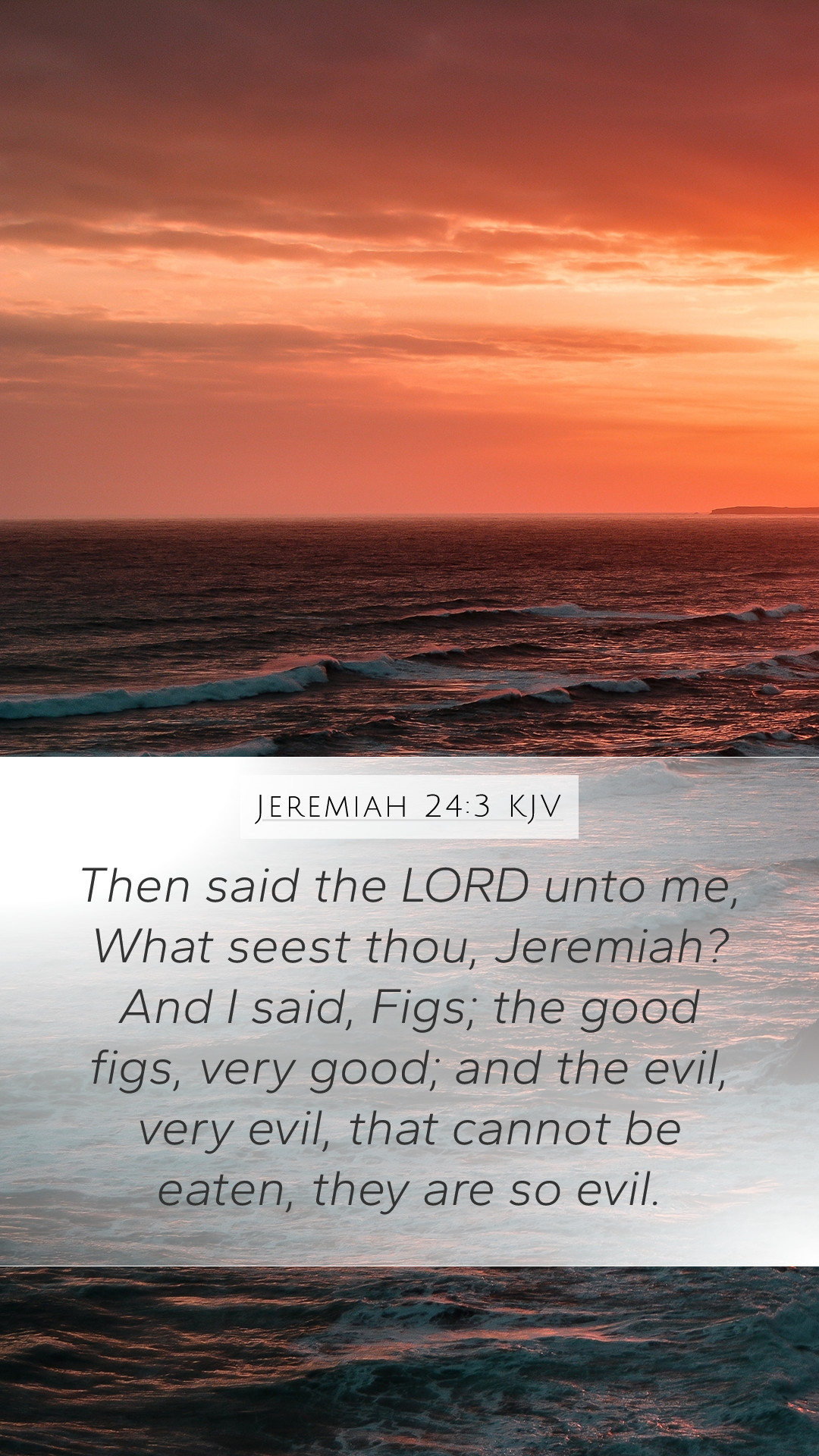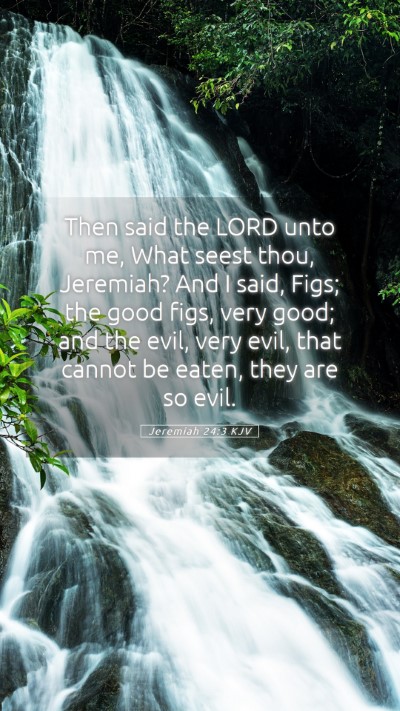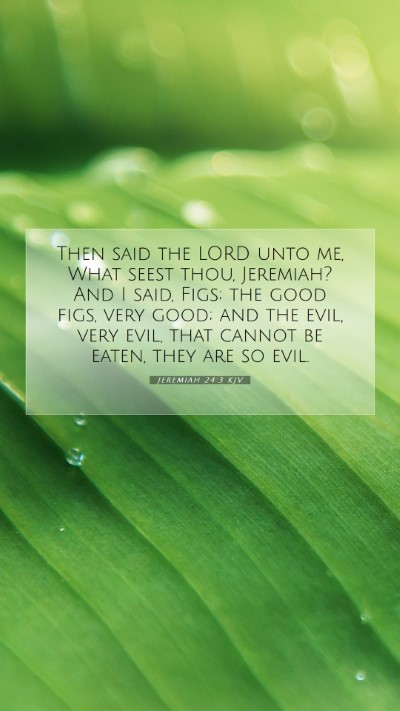Understanding Jeremiah 24:3
Jeremiah 24:3 is a poignant verse from the Old Testament that sheds light on the fate of two groups of people during the time of Jeremiah's prophecy. To gain a comprehensive understanding of this scripture, we will explore its meaning and implications through insights derived from various public domain commentaries, including those by Matthew Henry, Albert Barnes, and Adam Clarke.
Verse Text
"Then said the LORD unto me, What seest thou? And I said, A basket of summer fruit."
Contextual Background
Before delving into the nuances of Jeremiah 24:3, it is essential to consider the historical background. During Jeremiah's time, Jerusalem faced impending destruction due to the people's disobedience to God. The 'basket of summer fruit' symbolizes the people of Judah, distinguishing between those who would be preserved and those who would face judgment.
Interpretation and Analysis
Commentators like Matthew Henry and Albert Barnes offer valuable insights into the implications of this verse:
- Symbolism of Summer Fruit: The 'basket of summer fruit' signifies ripeness and readiness, implying that just as fruit is gathered when it is ripe, God is ready to differentiate between the faithful and the unfaithful.
- God's Perspective: The Lord asks Jeremiah what he sees, indicating God's desire for His prophet to discern and understand the spiritual condition of His people.
- Judgment and Mercy: The verse foreshadows the judgment upon those who remain unrepentant while offering hope for those who turn back to God.
Commentary Insights
Matthew Henry's Commentary
Henry reflects on how the 'baskets' represent two distinct groups among the Israelites, illustrating that their conditions are as different as ripe fruit and spoiled fruit. The summer fruit is ripe for gathering, just as the faithful are ready to be rescued by God.
Albert Barnes' Commentary
Barnes emphasizes that the fruit serves not only as a sign of judgment but also as a affirmation of hope for the exiles who remain faithful to God. The gathering of summer fruit conveys God's care for His people amidst impending doom.
Adam Clarke's Commentary
Clarke highlights that the inquiry made by the Lord is central to understanding the prophecy. It invites reflection on the current state of the nation and exposes the various spiritual conditions of its people.
Application of Jeremiah 24:3
This verse not only serves as a historical document but also speaks to modern audiences about the themes of judgment, hope, and divine discernment. Here's how it can be applied today:
- Self-Reflection: Individuals are encouraged to evaluate their own spiritual fruit—are they producing good works that reflect their faith?
- Promoting Repentance: The message of hope inspires believers to turn back to God, reflecting the importance of repentance in spiritual life.
- Encouragement for the Faithful: Like the ripe fruit, those who are faithful can rest assured that God will preserve them through trials.
Cross References
Jeremiah 24:3 can be related to several other biblical passages that further illuminate its themes:
- Matthew 3:10: This verse references the ax being laid to the root of the trees, similar to the judgment theme in Jeremiah.
- Jeremiah 29:11: A promise of hope and a good future, contrasting the judgment in Jeremiah 24:3.
- Isaiah 5:1-7: The song of the vineyard reflects a similar theme of accountability and judgment based on fruitfulness.
Conclusion
In summary, Jeremiah 24:3 provides profound insights into God's relationship with His people, illustrating themes of judgment and mercy through the metaphor of summer fruit. By studying this verse and its commentaries, readers can deepen their understanding of God's character and His expectations of their lives. This exploration aids students of the Bible in grasping the deeper meanings of Scripture and encourages practical applications for today's world.


